Good health and wellbeing are essential for all children’s development. At Sanctuary
Early Learning Adventure each child’s cultural and nutritional needs are catered for, with all meals cooked onsite daily.
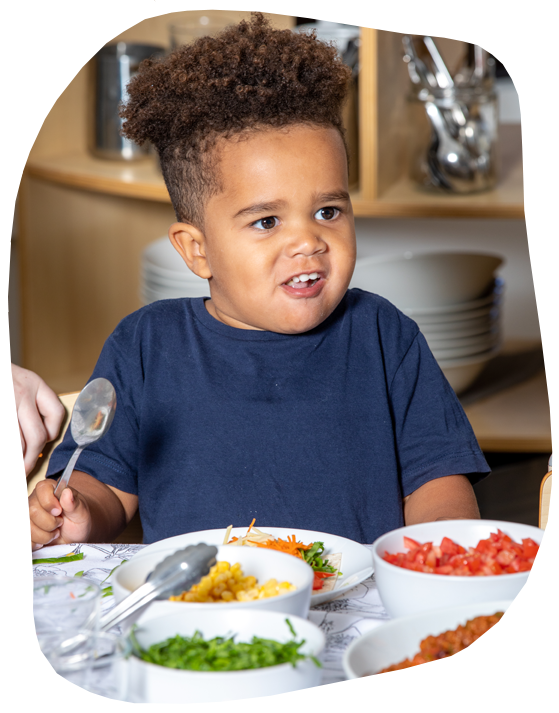
Healthy bodies create healthy minds. At each of our Sanctuary Early Learning Adventure centres, the health and wellbeing of our children is paramount. That’s why we provide all their meals, cooked onsite by our qualified chef, who plans the nutritional menu and prepares meals daily. All meals are provided as part of the fees. Our menus are guided by the Nutritional Guidelines Australia, and in line with Eat Well Australia.
The menus are displayed in our centres and also on our online platform Storypark—in our community noticeboard tab—so that families can see at all times what their children are eating and also if any changes were made throughout the day.
We all know that at this age children do have individual tastes, likes and dislikes. This is very common, and we cater for other choices just in case the menu is not to the child’s taste. Children need choices and mealtimes is no exception. We work closely with families to introduce or change food as required to assist in any special requirements their child has.
We believe that the more we can introduce and discuss food and produce the more the children will associate food and nutrition as a vital connection. We also grow different garden items for the qualified chef to use in cooking to encourage children to eat what we grow. Children can sample these and assist in cooking recipes to connect the relativity.
Allergies and intolerances are quite common in our fast paced world and we are aware of the extreme importance of ensuring these are highlighted to the chef prior to your child starting with Sanctuary Early Learning Adventure. We will invite you to sit down with our Centre Director and our qualified chef to ensure that we can put together a detailed plan of your child’s specific requirements.
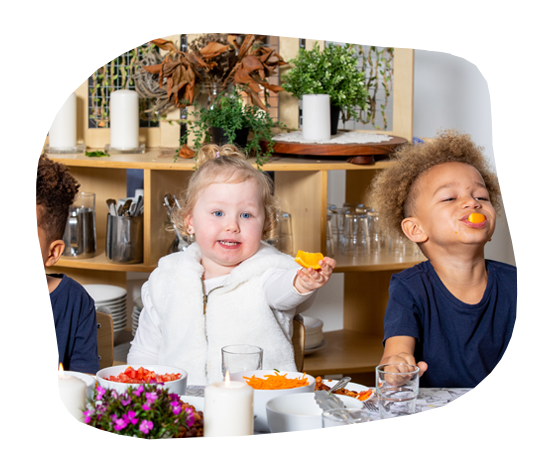
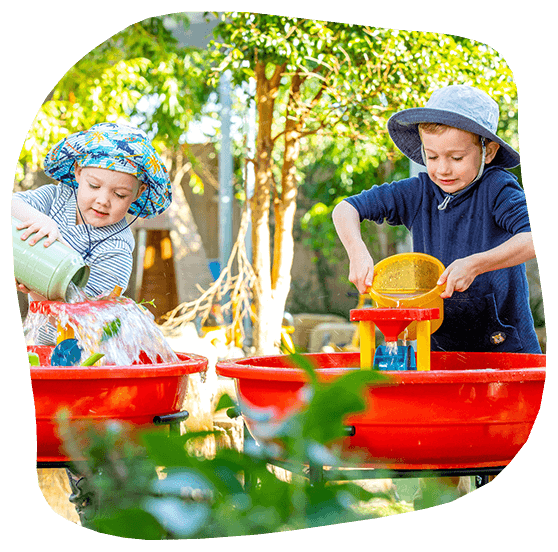
Never has it been more important to get our children outdoors in the space and fresh air nature can offer, to allow them the freedom to explore and discover this amazing planet.
We are very lucky to have superb outdoor play spaces to implement lots of active sports to get the mind and body working together in unison. Our Educators focus on improving gross motor skills, hand eye co-ordination and balance for all ages as well as focusing on achieving different physical milestones. When children turn three we also offer a sports program, where an experienced sports teacher comes to the centre at a designated time each week to help children keep their bodies active; as well as prepare them with co-ordination, emotional and social skills.
To nurture the whole child, early childhood education needs to follow the fundamental principle that children are learning everywhere and all the time. Children need a broad variety of learning experiences and opportunities to grow in areas such as gross and fine motor development, social-emotional development, language development and creative expression.
Sport has many psychological and social benefits for young children, even more than the physical activity during play. Researchers think this is because children benefit from the social side of being part of a team and from the involvement of other children and adults. Playing sports helps children develop better ways to manage the highs and lows of life. Sports activities help children learn to control their emotions and channel negative feelings in a positive way. It also helps children to develop patience and understand that it can take a lot of practice to improve their physical skills.
Physical activity has been shown to stimulate chemicals in the brain that make you feel better. So playing sport regularly improves children’s overall emotional wellbeing. Playing in a team helps children to develop many of the social skills they will need for life. It teaches them to cooperate and to listen to other children. It also gives children a sense of belonging. It helps them make new friends and builds their social circle.
Talk with your Centre Director to get further information on the sports program run at your centre.
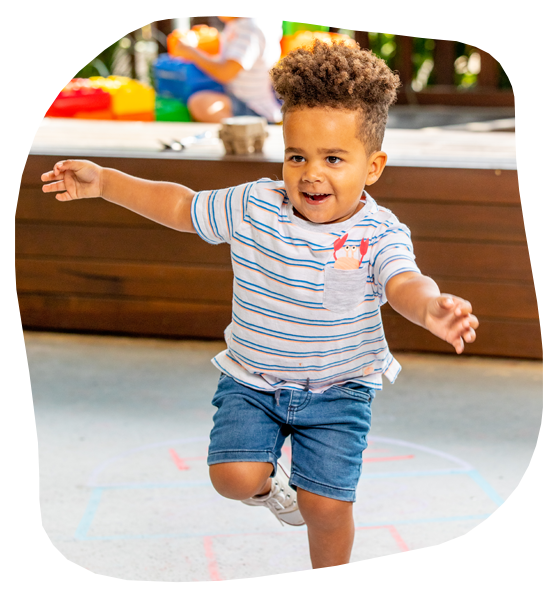
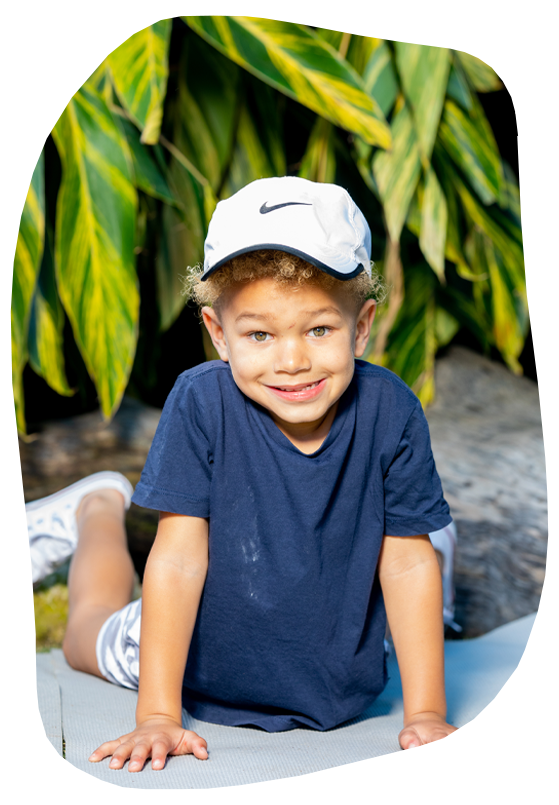
Just as nutrition and sports are important for development in these early years, yoga, meditation and mindfulness are also imperative. Some of the key benefits are:
Children often feel frustrated or irritable when they don’t get their own way and things get difficult as they haven’t yet learnt the virtue of patience. It is common through the developmental stages for children to have tantrums and tears; we want them to be able to easily navigate these emotions without too much distress.
Overcoming fear is another challenge for children as they are growing up in this fast-paced world. These great leaders of the future will need to have courage and emotional strength.
Technology, as positive as it can be, is also a factor that has increased the expectation of instant solutions which can increase impatience in children.
Yoga for children is designed to stimulate the physical, mental and emotional abilities of each child; the goal being to help build their self-esteem, discipline, and social development, which will benefit them with some necessary tools for dealing with the future challenges of life. Yoga enhances physical flexibility, refines balance and coordination, develops focus and concentration and strengthens the mind-body connection.
Meditation allows children to return to their natural rhythm and helps them cope with the emotions of frustration and fear. It helps to balance the whole system by supporting emotional development and gives rest to the mind so that they are not overwhelmed by their strong feelings. Mindfulness means maintaining awareness of our thoughts, feelings and surrounding environment with a gentle, nurturing outlook. Practicing mindfulness helps demonstrate to children ways to slow and calm their mind and their body.
By incorporating yoga, meditation and mindfulness into our practices, we provide children with time to reflect on their thoughts and focus on breathing. It gives them the opportunity to learn these practices from a very young age through fun, calm movements.
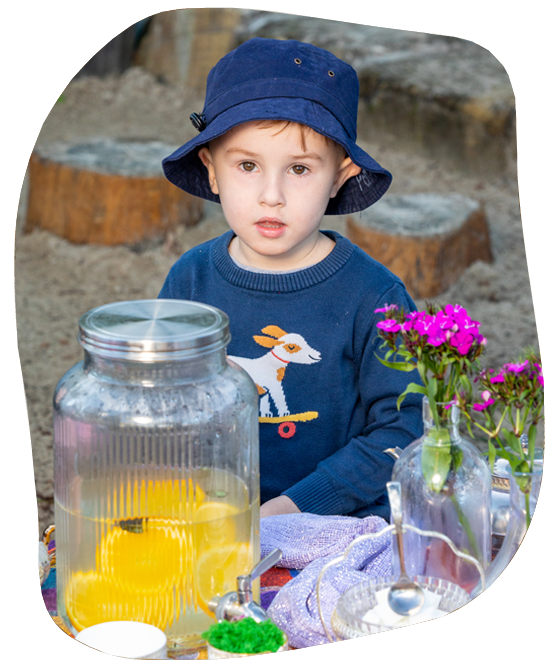
"*" indicates required fields